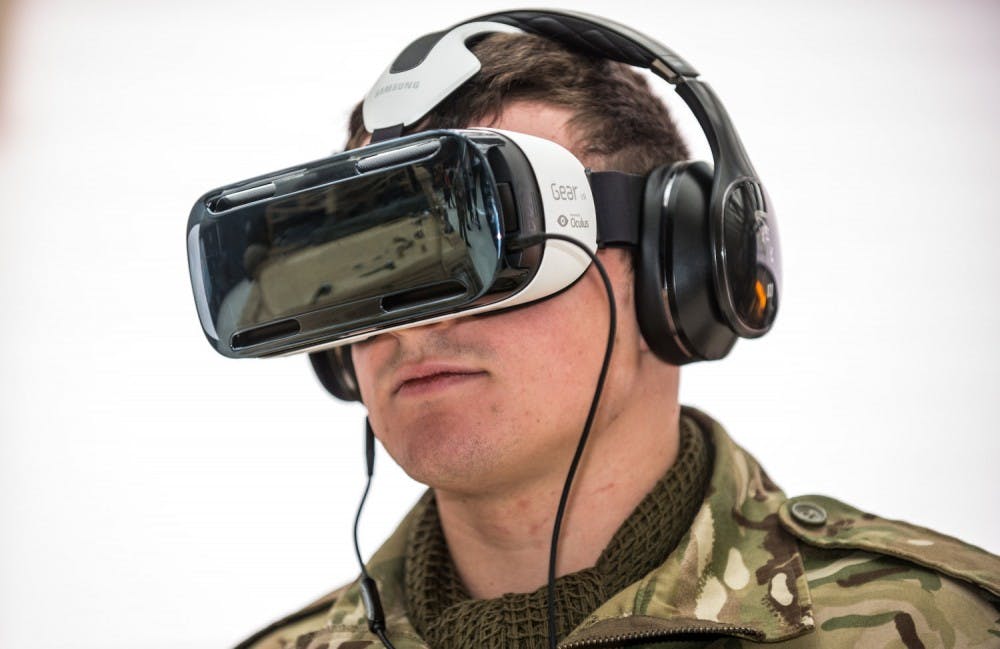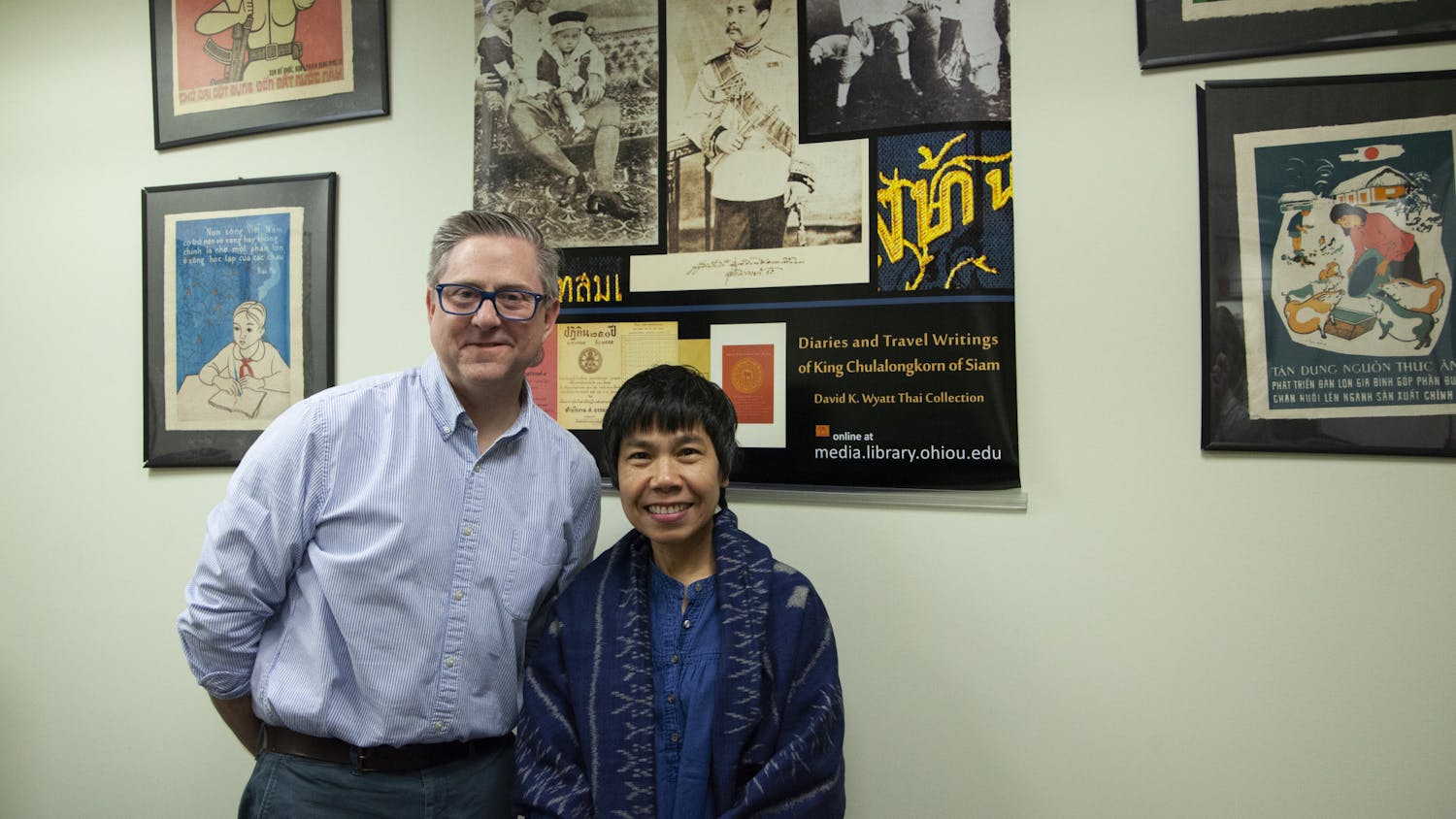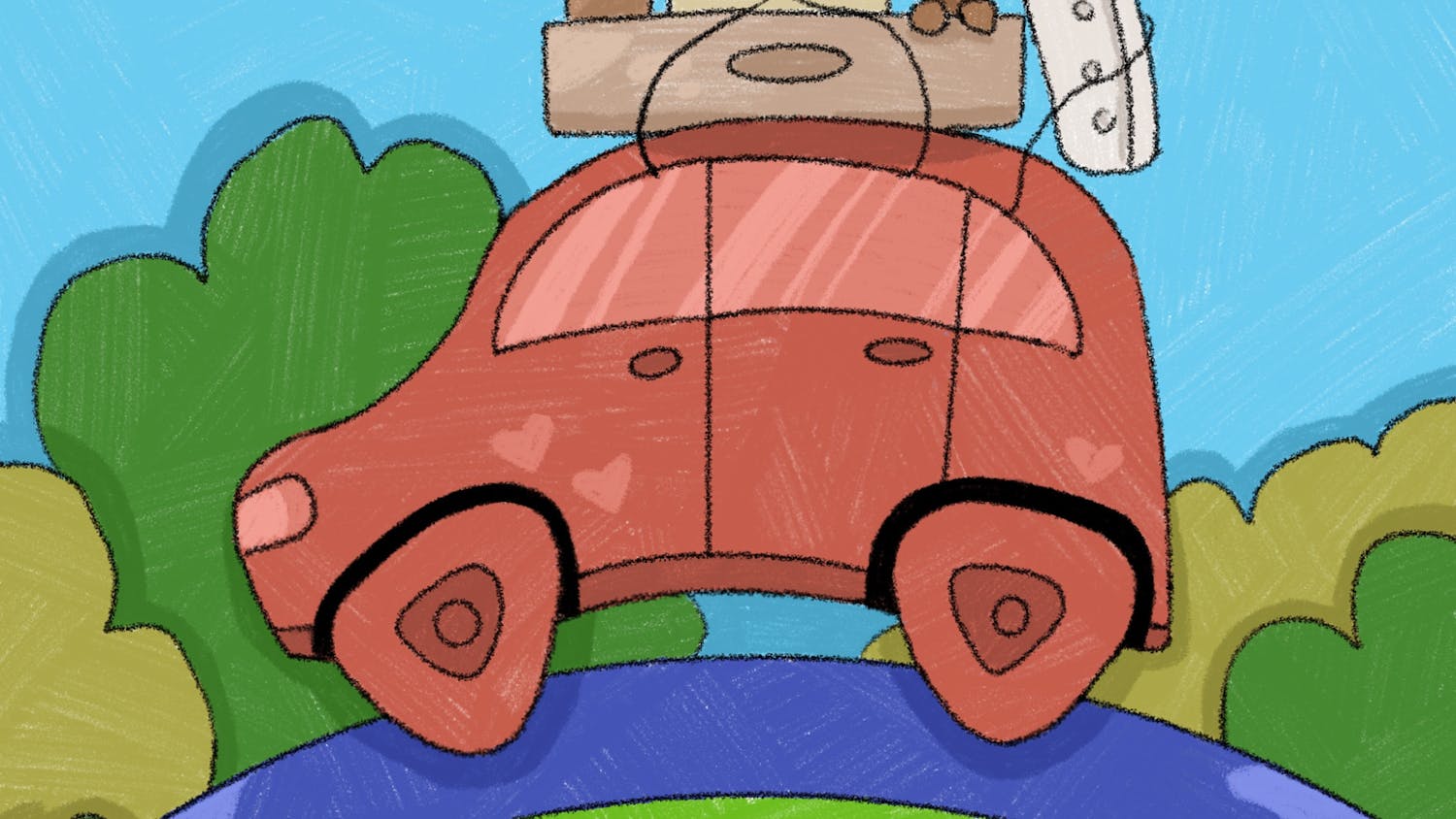From video games to films, virtual reality is becoming a popular medium — and it’s growing here in OU.
From The New York Times to The Washington Post, the popularity of virtual reality has been increasing in the recent years, and Ohio University is no different.
OU has seen its fair share of students trying out virtual reality here on campus. Guesswork VR, a virtual reality gaming company, held auditions on campus in March for their upcoming game project led by OU students Tyler Blust, a senior studying games and animation and Anthony Mikicic, a senior studying audio-music production.
“Virtual reality is a completely immersive audio-visual experience —The user is completely disconnected from reality,” John Bowditch, the director of the Game Research and Immersive Design Lab, said in an email.
While many might immediately think of gaming when virtual reality is mentioned, “that’s just one medium to embrace (virtual reality),” Bowditch said in an email. “Filmmaking, education, training, telepresence, and more are enhanced by this technology.”
According to Eric Williams, an associate professor in the School of Media Arts and Studies, there are different aspects to virtual reality.
First, virtual reality takes the role of “creating an entirely new world, so … everywhere you look, it feels as if you’re really there,” he said.
The other aspect of virtual reality is an augmented reality, which “enhances the reality that we (currently) see” by additional features such as informational pop-ups, Williams said.
“Virtual reality has always been popular … as an idea (but) technology has never been able to really accomplish it,” Williams said. “But now, technology is catching up to everybody’s imagination.”
Currently, virtual reality is in its “early adopter stage … due to expense and lack of developed experiences,” Bowditch said. However, he said he believes the prices will be lowered and more content will be improved and generated rapidly in the upcoming years.
“I wager that (virtual reality) will be adopted for common day-to-day uses by 2019,” Bowditch said in an email.
As part of the Immersive Media Initiative, the first of many virtual reality production classes will be offered over the summer in OU, Williams said.
“We’re going to start offering (classes) every year in how to do virtual reality production, animation. … So we’re actually going to have students on campus making virtual reality projects this summer,” Williams said. “(Virtual Reality) is already becoming accessible on the college level.”
Maddie Pinney, a junior studying integrated media, recently documented Lobsterfest with other media arts students using virtual reality equipment and said the experience was an opportunity to learn new skills.
Held annually in Athens, Lobsterfest is a music festival held by campus radio station All Campus Radio Network.
“I’ve seen virtual reality videos before and I think it’s a really innovative way to capture and tell stories … and promote empathy,” Pinney said. “It’s an accessible way to, in reality, put yourself in someone’s shoes.”
The Lobsterfest video, which documented the “behind the scenes” work of Pinney’s friend Bailey Kretz, the organizer of Lobsterfest, is estimated to be ready by mid-summer.
{{tncms-asset app="editorial" id="6ceef498-f530-11e5-811a-5f7c468e6880"}}
While the process of recording the festival was not difficult, “there’s just a lot of things that you have to think about that you don’t think about when you’re not recording in 360,” Pinney said.
“You have to think about how (the video) is going to look in 360 because it might be a cool shot in the front but if there’s nothing at the back it’s kinda boring,” she said. Other things to keep in mind include looking for optimal locations to set up the equipment and having to watch for the battery life of the cameras, Pinney said.
Editing the Lobsterfest video will take a while, Pinney said.
“Not only did we have to film, … we have to take all the videos and stitch them together (before) putting that into post-production and edit that with regular editing software,” she said.
However, at the end of the day, Pinney said the project will be “a long process, but a fruitful one.”
“It’s just really cool to wear this funky, little, headset thing and watch this video and you can turn your head and (relive) the entire experience,” she said.
@summerinmae
my389715@ohio.edu






